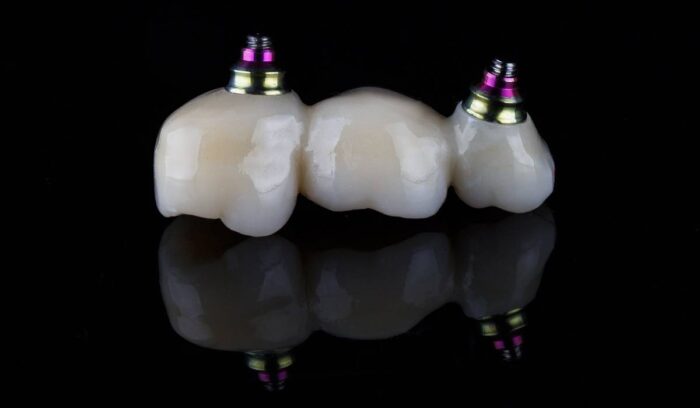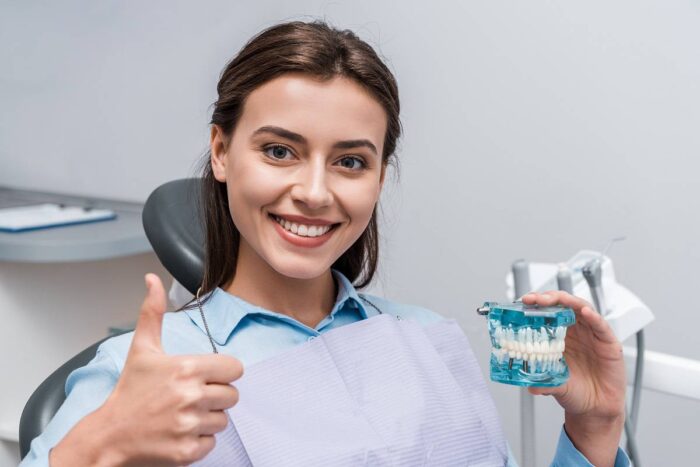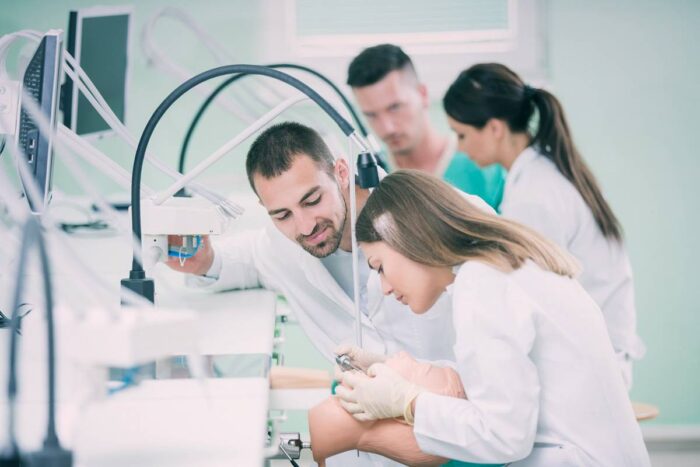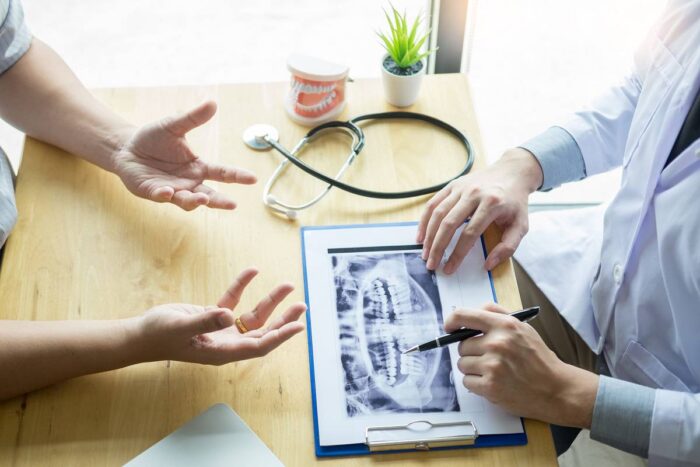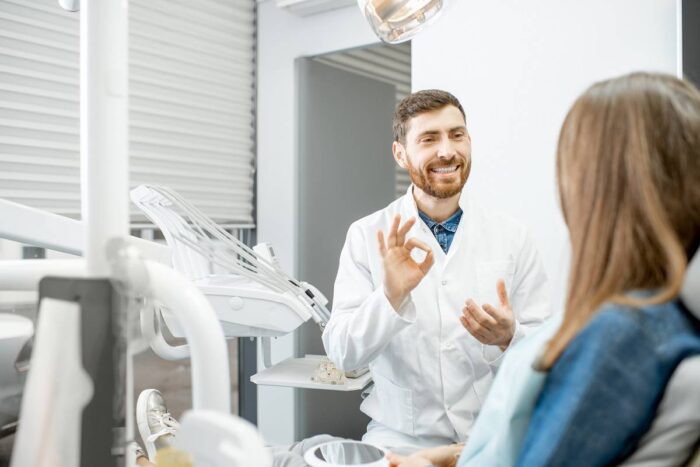Most Americans don't routinely obtain dental care due to high costs. Routine cleaning by a dentist can cost hundreds of dollars. Dentures and braces can cost thousands of dollars while filling cavities can cost several hundred dollars.
Most people would be unable to handle that much at once. The reason people do not have dental coverage could be because they are retired, on a limited income, unemployed, or out of work. Approximately 48.8% of Americans do not have dental insurance.
It may be difficult to see a dentist without insurance, whether you need regular checkups or treatment to fix unforeseen dental problems. You may have limited options for receiving emergency dental care without insurance or money if you lack both.
In spite of this, you still have a few options at your disposal to ensure healthy, pain-free teeth. Read on to explore these options for dental assistance for individuals with no insurance or money.
If you need a smartphone, you can check out our blog post on how to get a free phone through the EBB.
Dental Schools
A dental or dental hygiene program is offered in every state. Before they can graduate, dental students must complete hands-on training. Almost every school offers discounted services to the public through its clinics.
If you compare the prices of root canals and fillings to what established dentists charge, you may find you can save half or even more. Because students are monitored by licensed supervisors as they work on you, your appointment may take longer than usual.
The Commission on Dental Accreditation website allows you to search for a school in your area. You can often extend your payments over time at some schools which offer discounted dental services.
Visiting a dental college during regular business hours may be an affordable choice if you have a dental emergency during those hours.
Public Dental Clinics
A public health clinic is one that is given grants from the federal government and is run by a local health department or a community health center. There are many clinics that charge low, fixed fees or sliding scale fees according to your ability to pay.
There are many clinics that offer examinations, cleanings, X-rays, root canals, fillings, crowns, and surgical tooth extractions. Dentists on call may be available in an emergency situation.
A national directory of affordable dental programs is available on Toothwisdom.org, a website run by Oral Health America.
Free Dental Clinics
Dental care is in great demand, but there is a shortage of it. Donations for dental services are commonly made by charities, faith-based groups, and other dental organizations.
They can, however, have long waitlists or even be closed altogether. A few serve only those who are seniors, disabled or have medical conditions based on their income.
Nonprofit Clinics
It is possible to find dental clinics in some cities that offer lower-cost dental care for people who are low-income, lack insurance, or otherwise have a hard time affording dental care. Atlanta's Ben Massell Dental Clinic, for instance, offers a full range of services free of charge thanks to volunteer dentists and specialists.
Low-income people and those without health insurance can receive dental care at Nashville's Interfaith Dental Clinic on a first-come, first-served basis. Your ability to pay will determine how much you pay. The United Way's 211.org website provides information about some of these clinics. There are also free or safety net dental clinics listed in state and local directories.
Donated Services
There are some state or national charities that provide free care by using donated materials and labor. People 65 and older or with permanent disabilities or serious health conditions can qualify for Dental Lifeline services in all 50 states.
For braces and other orthodontic treatments, volunteers work with low-income children. Laptops are an essential need in this modern world. If you need a laptop and cannot afford one, read our article on how to be eligible for a free laptop with food stamps.
Medical Mission of Mercy
With the Medical Mission of Mercy USA, you can find treatments for medical, dental, and surgical needs for those in need. Mercy clinics are held across the country under their programs. Children can also be treated by some, while others only treat adults.
There is usually no requirement for proof of income at these clinics, and as many people as possible are treated in line.
Private Dentists
Some dentists provide free dental services a few times per year. If you need extensive oral treatment but can't afford it, they may accept referrals from other dentists. When seeking dental care after a long period of time, bring up your financial situation upfront and ask for help.
Government Dental Coverage
If you are unemployed or if you work but earn little, see if Medicaid or the related CHIP is available to you. No matter whether you are a parent or not, you may be eligible.
Medicaid does not charge monthly premiums in most states. Children younger than 19 are fully covered for dental care. Adults in one-third of states are covered for limited dental treatments, while another third are covered for extensive dental treatments.
Dental Savings Plans
The majority of dentists allow their patients to spread payments over several months according to their affordability. People without insurance can visit their regular dentist in an emergency situation because this option allows them to see their regular dentist.
The difference between dental savings plans and dental insurance is often confusing, but they're very different. In order to find the right plan for you, you and your family need to consider how much dental work you and your family get each year, along with how much out-of-pocket you are paying.
How Do Dental Savings Plans Work?
With one, you receive a discount from 10% to 60% off dental services when you go to a dentist whose network the plan has. There is no fee, so you don't have to pay a certain amount to receive the discount.
You pay a yearly fee (typically less than $150 for a family). You can also use the discount you receive after signing up for dental savings plans within a few days. This will allow you to wait until you are in need of one.
Who Might Want A Dental Savings Plan?
It may be a good option for those without dental insurance who want non-covered services. There may be discounts available for people who do not have dental coverage under Medicare or who have traditional insurance.
Additionally, if your dental insurance doesn't cover the cost of your dental work, you may want to consider a dental savings plan. It adds up quickly if you save 50% on two root canals that cost $1,000 each (most dental insurance plans have a cap of less than $2,000 a year).
How Do I Find A Dental Savings Plan?
In addition to getting them directly from major insurance companies, some companies offer the plans as part of their employee benefits packages. Whether or not your dentist takes part in a discount plan is something you should ask them about.
See if finding a new provider on the same plan would be worth the savings if you're open to new options. Most dental savings plans offer a list of members, which can be obtained from the plan's sponsor.
The dental savings plan industry has attracted some fraudsters, despite the fact that many reputable companies offer them. Before making a payment, make sure you receive information by mail. Avoid salespeople who put pressure on you. Alternatively, you can contact your state's insurance regulator or the Better Business Bureau to determine whether a company has been sued.
If you are a low-income individual and interested in other government and private programs that provide financial assistance, check out the rest of the Gov-Relations resources. For more information on single-father assistance, read our article on the kind of financial support available to single fathers.


